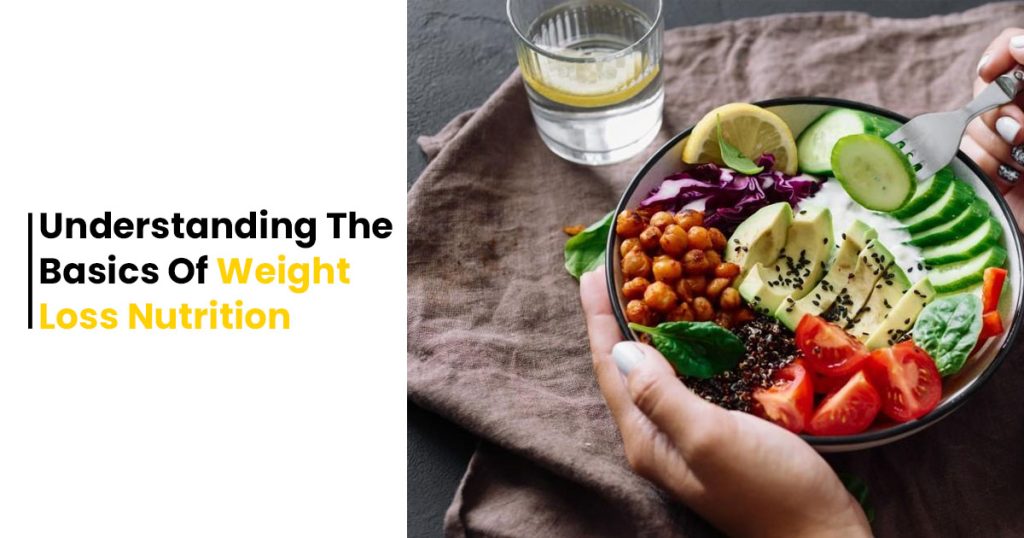Are you tired of trying endless fad diets that promise quick weight loss but leave you feeling unsatisfied and drained? Look no further – the Ultimate Guide to a Holistic Weight Loss Nutrition Plan is here to help you shed those pounds naturally and boost your metabolism. By adopting a holistic approach to your nutrition, you’ll not only achieve sustainable weight loss, but also improve your overall health and well-being.
This comprehensive guide will provide you with all the tools you need to create a nourishing and balanced meal plan that supports your weight loss goals. From understanding the impact of different foods on your metabolism; to tips for portion control and mindful eating, you’ll discover the keys to long-term weight management.
We’ll delve into the science behind metabolism and how to kick it into high gear through targeted nutrition. You’ll learn about metabolism-boosting foods and supplements that can give your weight loss journey an extra push. Plus, we’ll share delicious and nutritious recipes that will keep your taste buds satisfied while you shed those unwanted pounds.
Achieve a lasting weight loss journey by bidding adieu to crash diets. Get ready to transform your body and your life with the Ultimate Guide to a Holistic Weight Loss Nutrition Plan.
Understanding The Basics Of Weight Loss Nutrition

Nutrition is important when it comes to losing weight.. Understanding the basics of weight loss nutrition is essential for creating a sustainable and effective plan. It’s important to focus on consuming nutrient-dense foods that provide your body with the right balance of macronutrients – carbohydrates, proteins, and fats. These macronutrients are essential for energy production, muscle growth, and overall health.
Carbohydrates are the body’s main source of energy, but not all carbs are created equal. It’s important to choose complex carbohydrates such as whole grains, vegetables, and legumes, which provide fiber and important nutrients. On the other hand, simple carbohydrates found in refined sugars and processed foods should be limited as they can lead to weight gain and energy crashes.
Protein is crucial for building and repairing tissues, and it also helps keep you feeling full for longer. Make sure your meals contain lean protein sources including fish, tofu, chicken breast, and lentils. Healthy fats, such as those found in avocados, nuts, and olive oil, are also important for supporting brain function, hormone production, and overall health.
To create a successful weight loss nutrition plan, it’s important to focus on a calorie deficit diet. This entails eating less calories than what your body need to stay at its present weight.. However, it’s essential to do this in a healthy and sustainable way, rather than resorting to extreme calorie restriction. Aim for a moderate calorie deficit of around 500-1000 calories per day to promote gradual and sustainable weight loss.
The Importance Of A Holistic Approach To Weight Loss

Taking a holistic approach to weight loss means considering not only what you eat but also other factors that can impact your overall health and well-being. It’s important to focus on nourishing your body with whole, unprocessed foods, but it’s equally important to address other aspects of your lifestyle that can contribute to weight gain or hinder weight loss.
One important aspect to consider is sleep. Sleep deprivation has been associated with weight gain and a higher chance of obesity. When you don’t get enough sleep, your body releases more ghrelin, a hormone that stimulates appetite, and less leptin, a hormone that signals fullness. Increased desires and overeating may result from this. Try to get between seven and nine hours of good sleep every night to help you lose weight.
Stress is another factor that can impact weight loss. When you’re stressed, your body releases cortisol, a hormone that can increase appetite and cravings, particularly for unhealthy foods. Choose stress-reduction techniques that are good for you, such as yoga, meditation, or enjoyable hobbies. Taking time for self-care can help reduce stress levels and support your weight loss journey.
In addition to nutrition and stress management, regular physical activity is key for weight loss and overall health. Incorporating exercise into your routine can help burn calories, increase metabolism, and build lean muscle mass. Aim for a combination of cardiovascular exercises, such as running or cycling, and strength training exercises to maximize your weight loss results.
Taking a holistic approach to weight loss means addressing all aspects of your lifestyle that can impact your weight and overall well-being. By focusing on nutrition, sleep, stress management, and exercise, you’ll create a solid foundation for long-term weight loss success.
How Metabolism Affects Weight Loss

The term “metabolism” describes the chemical reactions that take place in your body to transform food into energy. How well your body burns calories depends on its metabolic rate.. Understanding how metabolism affects weight loss can help you make informed choices when designing your nutrition plan.
Your basal metabolic rate (BMR) is the number of calories your body needs to maintain its basic functions at rest. This includes breathing, circulating blood, and maintaining organ function. Several factors can influence your BMR, including age, gender, body composition, and genetics.
Muscle mass plays a significant role in metabolism. Your resting metabolic rate increases with muscle mass. This is because the metabolic activity of muscle tissue is higher than that of fat tissue.. Incorporating strength training exercises into your fitness routine can help build lean muscle and boost your metabolism. The thermic effect of food (TEF) is another factor that affects metabolism. TEF refers to the energy expended by your body to digest, absorb, and process the nutrients from the foods you eat. Protein has the highest TEF, followed by carbohydrates and fats. Including lean sources of protein in your meals can increase your TEF and boost your metabolism.
In addition to muscle mass and TEF, other factors that can impact metabolism include hormone levels, activity level, and overall health. Hormones such as thyroid hormones and insulin play a role in regulating metabolism. A sedentary lifestyle can slow down your metabolism, while health conditions such as hypothyroidism can also affect metabolic function.
Understanding the factors that influence metabolism can help you make targeted nutrition choices to boost your metabolic rate and support weight loss. In the next section, we’ll explore foods that can help kick your metabolism into high gear.
Foods That Boost Metabolism
When it comes to weight loss, boosting your metabolism is key. Your metabolism is the process by which your body converts the food you eat into energy. By increasing your metabolic rate, you can burn more calories even at rest. But which foods can help you achieve this?
Lean Proteins
Unlike fats or carbs, proteins need more energy to digest, therefore foods high in protein, such as chicken, turkey, fish, and tofu, require more energy to prepare.. Your metabolism may temporarily increase as a result of protein’s thermic action.
Spicy Foods
Adding spices like chili peppers, cayenne pepper, and ginger to your meals can increase your metabolic rate. These spices contain compounds that raise body temperature and stimulate the release of adrenaline, leading to a small increase in calorie burn.
Green Tea
Besides being a great source of antioxidants, green tea has been shown to boost metabolism and increase fat oxidation. The catechins found in green tea can help increase calorie expenditure, making it a beneficial addition to your weight loss nutrition plan.
Incorporating these metabolism-boosting foods into your diet can not only support weight loss but also provide other health benefits. Remember to include a variety of nutrient-dense foods in your meal plan for overall well-being.
Incorporating Exercise Into Your Weight Loss Journey

While proper nutrition plays a significant role in weight loss, incorporating exercise into your routine can further enhance your results. Exercise increases lean muscle mass, burns calories, and enhances general fitness. Here are some tips for incorporating exercise into your weight loss journey:
Find An Activity You Enjoy
Whether it’s jogging, dancing, swimming, or cycling, finding an exercise that you enjoy will make it easier to stick to your routine. Try out a variety of hobbies before deciding on one you enjoy..
Aim For A Mix Of Cardio And Strength Training
Cardio exercises like running or cycling can help burn calories, while strength training exercises like weightlifting can increase muscle mass, which in turn boosts your metabolism. Combining both types of exercises can maximize your weight loss efforts.
Remain Consistent: Exercise Consistency Is Essential
Aim for at least 150 minutes of moderate-intensity aerobic activity or 75 minutes of vigorous-intensity aerobic activity per week, along with at least two days of strength training exercises.
Before beginning any new fitness regimen, always get medical advice, especially if you have any underlying health issues or concerns.
Mindful Eating And Its Role In Weight Loss

Mindful eating is a powerful tool that can support your weight loss goals by helping you develop a healthier relationship with food. It entails focusing on the flavor, texture, and scent of your meal as well as your hunger and fullness cues in the present moment when eating. Here’s how mindful eating can contribute to weight loss:
Increased Awareness
Mindful eating helps you become more aware of your body’s hunger and fullness signals. By listening to your body’s cues, you can better gauge when you’re satisfied and avoid overeating.
Reduced Emotional Eating
Mindful eating encourages you to tune in to your emotions and identify the difference between physical hunger and emotional hunger. This can help prevent impulsive eating triggered by stress, sadness, or boredom.
Enjoyment of Food
By savoring each bite and fully experiencing the flavors and textures of your food, you can enhance your eating experience. This can lead to increased satisfaction and reduce the need for excessive portion sizes.
Incorporating mindful eating practices into your daily life can help you develop a healthier relationship with food and make more conscious choices that support your weight loss journey.
Meal Planning And Preparation Tips For Weight Loss Success

Meal planning and preparation are essential for successful weight loss. By taking the time to plan and prepare your meals in advance, you can make healthier choices, save time, and avoid relying on unhealthy convenience foods. Here are a few pointers to get you going:
Set Aside Time For Meal Planning
Dedicate a specific day each week to plan your meals. Take inventory of your pantry and create a shopping list based on your planned meals to ensure you have all the necessary ingredients.
Prioritize Whole Foods
Focus on incorporating whole, unprocessed foods into your meal plan. These consist of whole grains, fruits, vegetables, lean meats, and healthy fats. Consume as little sugar-filled and processed meals as possible.
Prep Ingredients In Advance
Chop vegetables, cook grains, and marinate proteins ahead of time to streamline your meal preparation process. Pre-portion snacks and store them in convenient grab-and-go containers for easy access.
Cook In Batches
Prepare large batches of meals and freeze them in individual portions. This way, you’ll have healthy meals readily available when you’re short on time or don’t feel like cooking.
By implementing these meal planning and preparation tips, you’ll have a well-organized approach to your weight loss nutrition plan, making it easier to stay on track and achieve your goals.
Conclusion
There are more effective weight loss strategies than crash diets and fast cures.. By adopting a holistic approach to your nutrition, incorporating exercise, practicing mindful eating, and implementing meal planning and preparation, you can create a lifestyle that supports long-term weight management.
Remember that everyone’s weight loss journey is unique, and it’s essential to listen to your body and make adjustments along the way. Be patient, stay consistent, and celebrate small victories. With the Ultimate Guide to a Holistic Weight Loss Nutrition Plan as your tool, you’re well-equipped to embark on a journey towards a healthier and happier you. Embrace the power of holistic nutrition and watch as your body transforms, shedding pounds naturally and boosting your metabolism for a lifetime of wellness.

